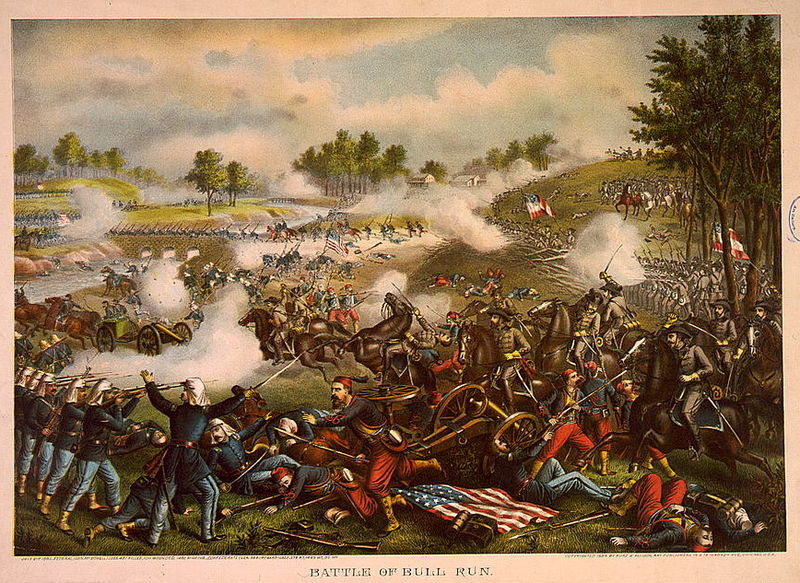Only Ninety Days?
 A couple weeks ago my boss said to me, “It’s been ninety days since you started working for the company. How’s it going? How are you feeling about your part-time job?” I appreciated her consideration, answered professionally, and smiled with satisfaction about my work.
A couple weeks ago my boss said to me, “It’s been ninety days since you started working for the company. How’s it going? How are you feeling about your part-time job?” I appreciated her consideration, answered professionally, and smiled with satisfaction about my work.
However, the words “ninety days” kept ringing in my ears.
Ninety days. That’s exactly how long the Civil War was supposed to last. Only ninety days?
In 1861, both sides believed the conflict would be decided in one battle. Volunteers rushed to form regiments. Officers paraded around in gilded uniforms. Civilians hollered. The South believed their independence was just around the corner…that the Yankees wouldn’t fight. The North thought the Union cause could be defended in just one battle…that the Rebels would be crushed into submission.
For the Union Army around Washington D.C., the approaching end of ninety day enlistments prodded General McDowell to reluctantly march his inexperienced troops into Virginia. The march turned into a woodland frolic as some regiments broke marching ranks to go berry picking.
Firmly convinced that the decisive moment of the “mini-war” approached, wealthy civilians packed up their fancy lunches and took carriage rides toward Manassas Junction to view the great battle. Anticipating the historic moment when the Union boys whipped the Rebels and ended the war…and then everything would go back to normal.
Do these paragraphs present an oversimplification of the situation in 1861? Possibly, but most people really thought the war would end in ninety days from its beginning in April. There was a highly patriotic, enthusiastic, over-confident feeling influencing most participants.
We know how the story ends. It doesn’t end in ninety days.
That first battle – Bull Run (Manassas) – awakened soldiers and civilians to the realities of war. The Confederates won, raising their confidence and morale. The Union lost, and, when they stopped running, they wanted to fight again. They knew they had to try to win again. That defeat shocked the North out of its complacency about a ninety day war and recruited larger armies which would receive better training before their next field action.
Looking back, it’s hard to imagine that folks thought the Civil War would start and end within ninety days. That only about three months. Three months. Good grief – I’m just getting settled into my work routine and finish up my job training. And I’m definitely not ready to “go to battle” in the corporate world with the still-limited marketing skills I’ve learned.
Ninety days. In 1861, they couldn’t imagine a longer conflict.
Only ninety days? With hindsight and knowledge of the four bloody years, we find it hard to imagine how that could’ve even been a possibility.

Ms. Bierle:
While it is true, as you say, that many, probably most, of the early combatants thought the war would be over quickly, indeed before they had a chance to participate, the more prescient among them knew it most certainly would not be a cakewalk. Sherman, for example, who taught at a Louisiana military academy before the war, told his secessionist friends that a war would be long and bloody, but that the Union would prevail in the end–exactly right. He fought at First Bull Run and must surely have felt vindicated by the result.
John C. Fazio
Great question, John. There were far-sighted individuals (particularly historical figures who became/were leaders during the war) that believed the conflict would be long and bloody. However, the overall popular feeling in newspapers and other cultural influences supported the short war idea prior to First Bull Run. It’s hard to make blanket generalizations because there are always those exceptions, but overall according to my reading and understanding “90 day war” was a prevalent idea. Thanks for asking this question to clarify!
While “popular” thought was one battle and done, the 90 day idea is greatly exaggerated.. Lincoln could, by law, only call state troops to Federal service for 90 days. Scott his General in charge knew it would not be a 90 day war and the CSA was enlisting soldiers for one and two year terms.